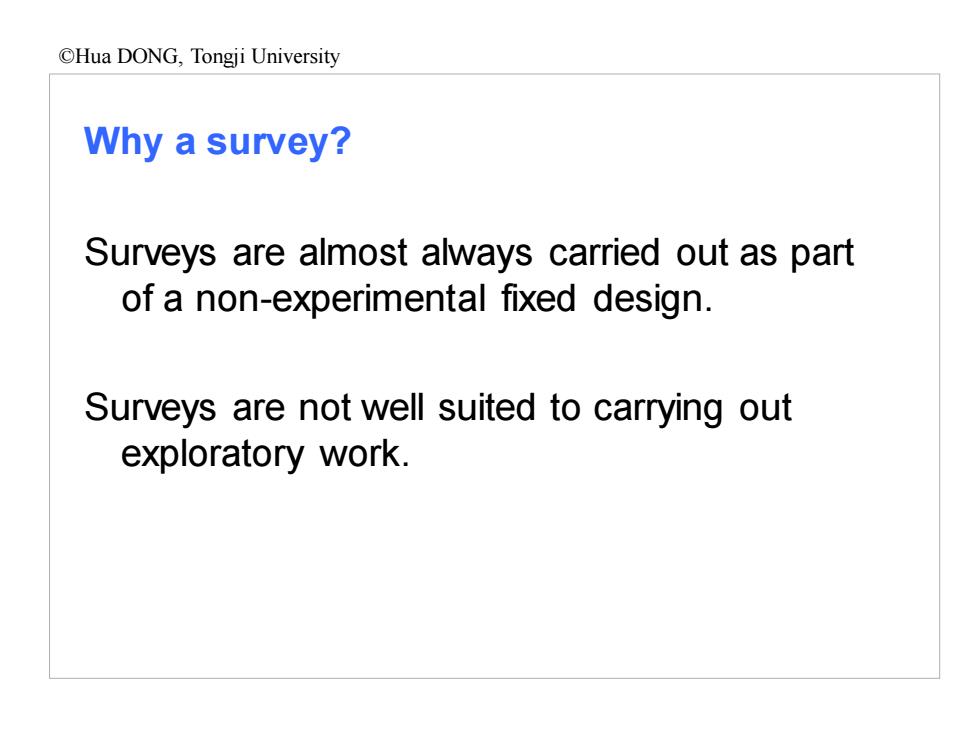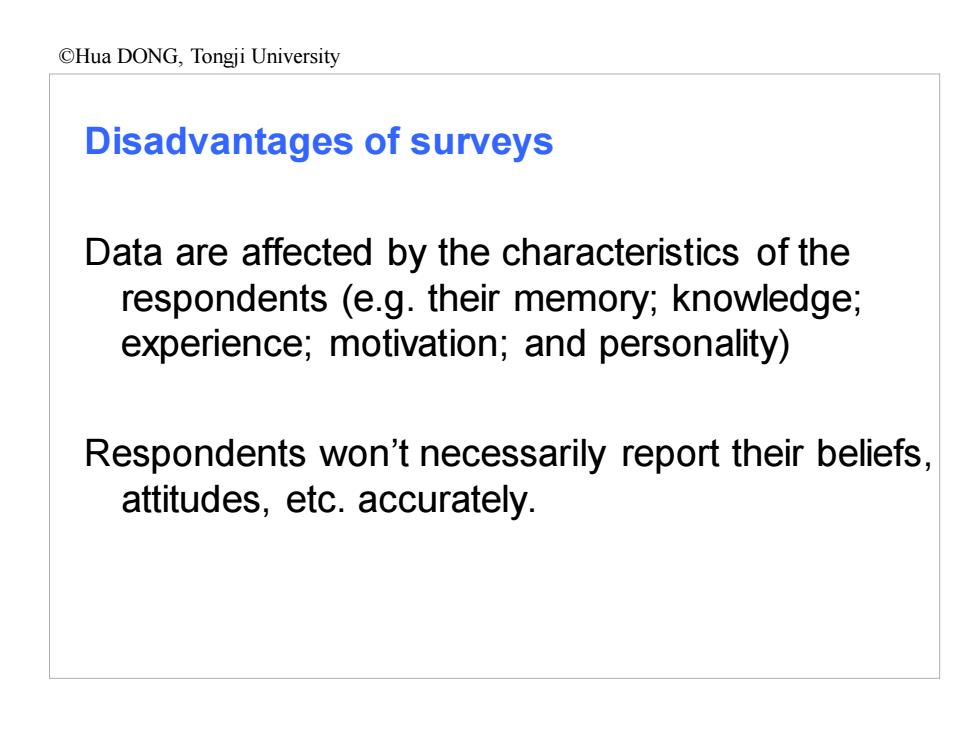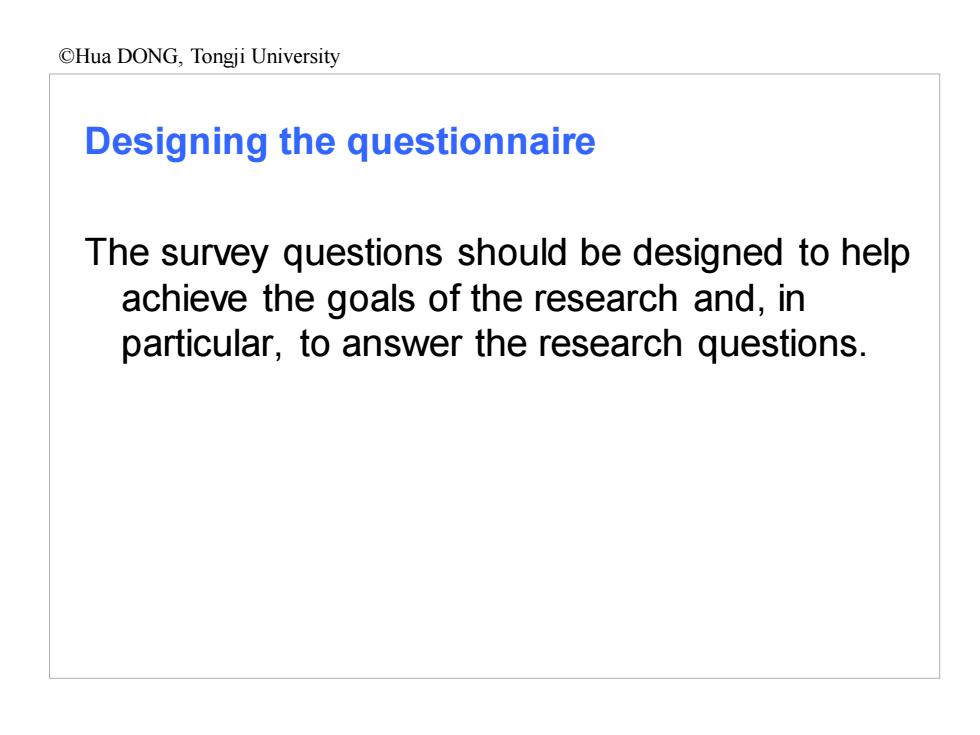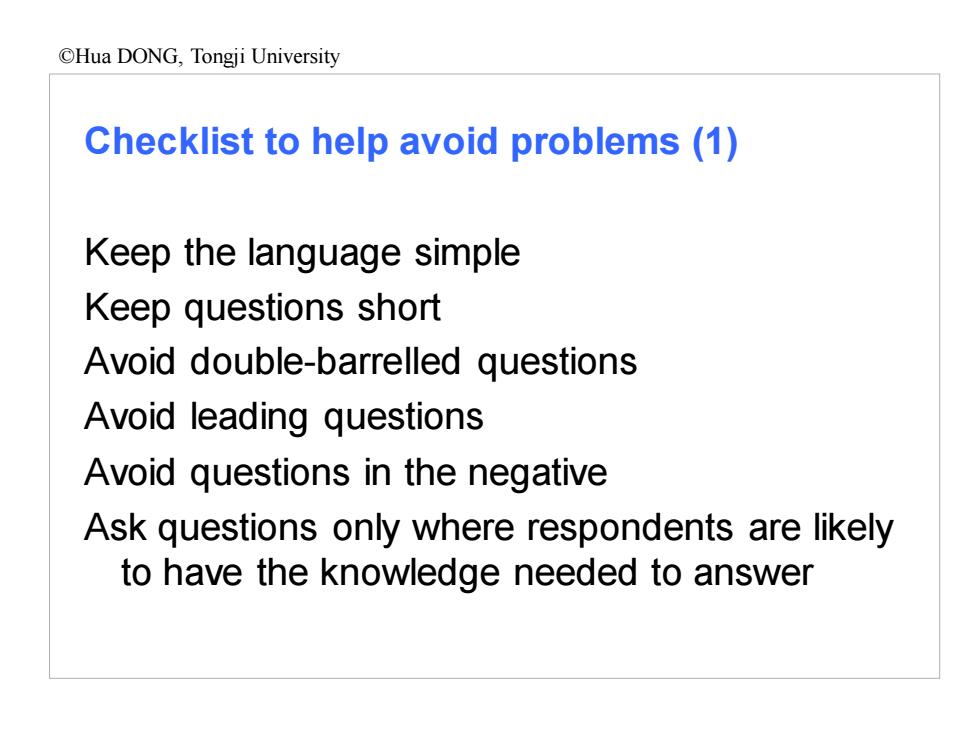
Hua DONG,Tongji University Why a survey? Surveys are almost always carried out as part of a non-experimental fixed design. Surveys are not well suited to carrying out exploratory work
Why a survey? Surveys are almost always carried out as part of a non-experimental fixed design. Surveys are not well suited to carrying out exploratory work. ©Hua DONG, Tongji University

Hua DONG,Tongji University Advantages of surveys Provide a relatively simple and straightforward approach to the study of attitudes,values, beliefs and motives. May be adapted to collect generalizable information from almost any human population High amounts of data standardization
Advantages of surveys Provide a relatively simple and straightforward approach to the study of attitudes, values, beliefs and motives. May be adapted to collect generalizable information from almost any human population High amounts of data standardization ©Hua DONG, Tongji University

Hua DONG,Tongji University Disadvantages of surveys Data are affected by the characteristics of the respondents (e.g.their memory;knowledge; experience;motivation;and personality) Respondents won't necessarily report their beliefs, attitudes,etc.accurately
Disadvantages of surveys Data are affected by the characteristics of the respondents (e.g. their memory; knowledge; experience; motivation; and personality) Respondents won’t necessarily report their beliefs, attitudes, etc. accurately. ©Hua DONG, Tongji University

OHua DONG,Tongji University Designing the questionnaire The survey questions should be designed to help achieve the goals of the research and,in particular,to answer the research questions
Designing the questionnaire The survey questions should be designed to help achieve the goals of the research and, in particular, to answer the research questions. ©Hua DONG, Tongji University

Hua DONG,Tongji University Checklist to help avoid problems (1) Keep the language simple Keep questions short Avoid double-barrelled questions Avoid leading questions Avoid questions in the negative Ask questions only where respondents are likely to have the knowledge needed to answer
Checklist to help avoid problems (1) Keep the language simple Keep questions short Avoid double-barrelled questions Avoid leading questions Avoid questions in the negative Ask questions only where respondents are likely to have the knowledge needed to answer ©Hua DONG, Tongji University